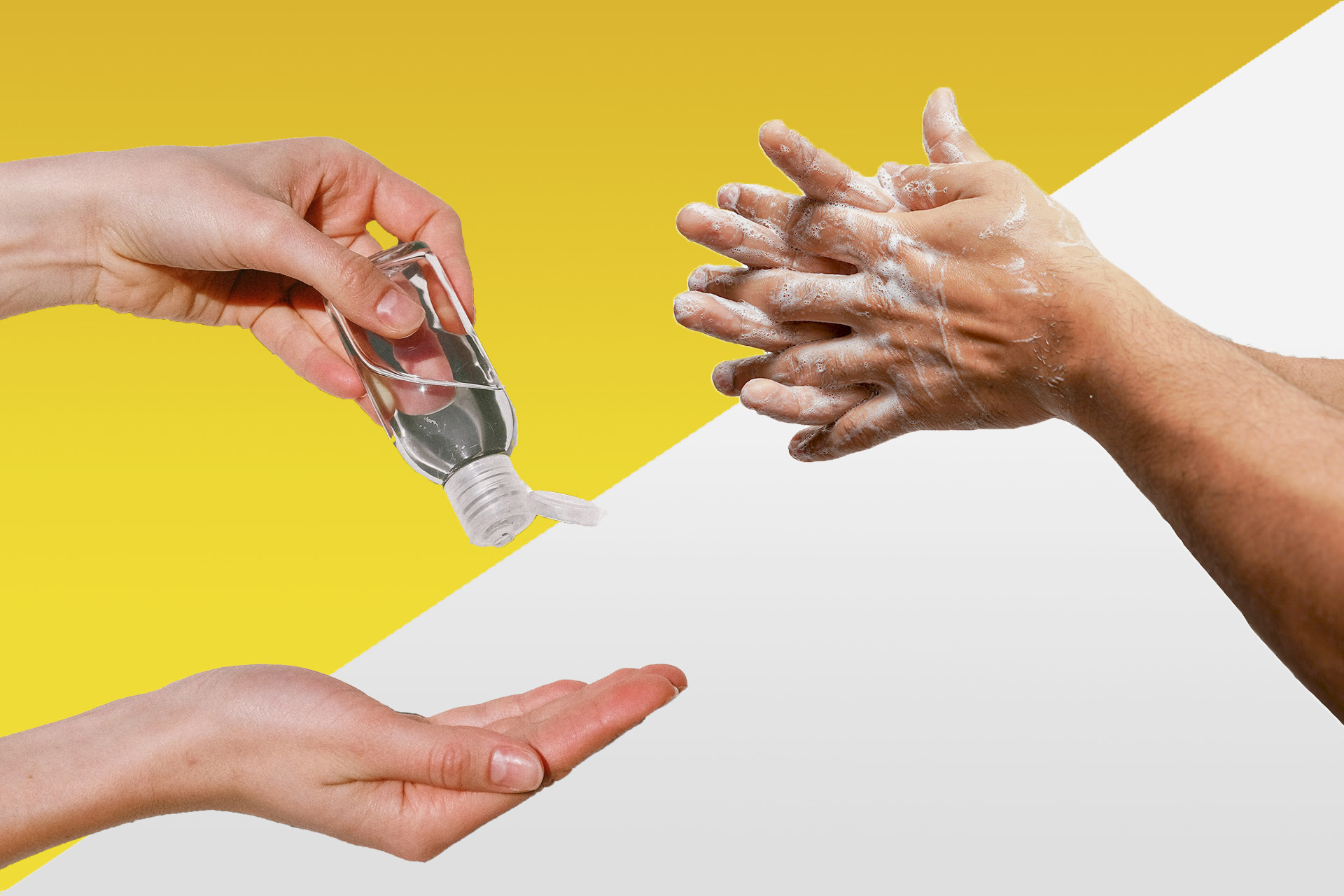Fight Germs This Fall with Hand Soap and Hand Sanitizer
Does Hand Sanitizer and Washing Your Hands Provide the Same Level of Protection?
Keeping your hands clean this fall will help protect you from getting sick and prevent the spread of germs. According to the CDC, washing hands regularly can reduce respiratory illnesses, like colds, by 16-21%. However, is there a clean difference between using hand soap and hand sanitizer? Are they just as effective as each other? How do they kill germs and viruses? We answer all those questions below on the difference between using hand sanitizer and soap.
Hand Sanitizer
Hand sanitizers, particularly alcohol-based ones, have gained popularity due to their convenience and portability. They are a handy on-the-go option when soap and water are not readily available. According to ICU Health, hand sanitizer can disinfect if it is at least 60% alcohol. If it has less than 60% alcohol content it may only reduce the amount of bacteria on your hands. However, hand sanitizer alone is unable to remove all bacteria and viruses.
In communal settings, such as handling equipment, eating food, or playing sports, hand sanitizer is effective in killing germs. But in situations where grease, oils, and dirt are involved, hand sanitizer cannot fully remove all soil from your hands. Also keep in mind that in order for the hand sanitizer to work at its best, it needs to fully dry on your hands (typically 20 seconds but please consult the directions on the bottle for exact efficacy times) before doing any activities, and use the appropriate amount as directed on the bottle.
Hand-Soap and Water
Unlike hand sanitizer, soap and water are more efficient in removing bacteria and viruses. What helps soap kill bacteria more effectively is that their molecules have hydrophilic (water-attracting) and hydrophobic (water-repelling) ends. When you scrub your hands with soap and water, these molecules surround dirt and germs, lifting them off your skin and allowing them to be washed away when you rinse.
If you want to learn more about hand-washing tips and best practices, check out our previous post on the Benefits of a Touch-Free Washroom.
The Clean Difference: Soap vs. Hand Sanitizer
While both soap and hand sanitizers play a role in maintaining hygiene, they differ in certain areas. Here is a side-by-side comparison.
- Cleaning Power: Soap and water physically removes germs and dirt, while hand sanitizers kill germs on contact.
- Comprehensiveness: Soap targets a wider range of germs, including viruses and bacteria. Hand sanitizers might not be as effective against certain viruses or germs.
- Effect on Skin: Soap is generally gentler on the skin in the long run, while hand sanitizers can cause dryness with frequent use due to their alcohol content. Some sanitizers out there have added moisturizers to the formula that help combat dryness. Our Account Managers can help you find the right solution if this is a concern.
- Accessibility: Soap and water might not always be available, making hand sanitizers a great alternative when you are on the move.
To maximize your germ-fighting strategy, we recommend a combination of both hand soap and hand sanitizer. We recommend using soap and water whenever possible, especially before eating, after using the restroom, and when your hands are visibly dirty. Hand sanitizers are best used in situations where soap and water are not easily accessible and can be stored for access while traveling. This fall, arm yourself with a combination of soap and hand sanitizer to keep germs at bay. By understanding their roles and using them properly, you will be well-equipped to enjoy the season without falling prey to unwanted illnesses. Stay clean, stay healthy!
Learn more
For more information, contact your local WCP account manager or customer service team. We’d be happy to set up a consultation to discuss cleaning supplies, sanitizers, and touchless washroom products to meet the goals of your business. Give us a call today at (877) 398-3030.
Sources: Soap vs. Hand Sanitizer from UCI Health and CDC


